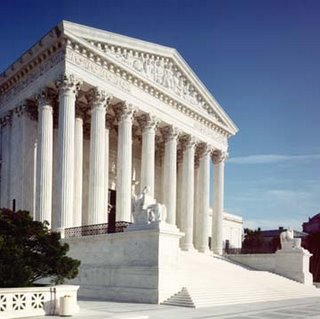Shaping the Shapers II

Let’s think some more about the appointment of a justice for the Supreme Court.
There has been endless commentary about Judge Sotomayor’s remark about an elderly Latina woman reaching a better decision than an elderly Anglo man. The conservative viewpoint seems to be, as remarked in my previous post, that the law is the law and all one need do is read and apply it.
In that case, why do we need justices? Wouldn’t a well-programmed computer be able to search, balance out, and apply past precedents and provide a decision without all the messy uncertainty of human ratiocination?
Or, if we insist in having human beings, why would we not do as they do in many other walks of life: check for the most distinguished resumes, look for the highest marks on a standard test, and hire the winner? Why did Ronald Reagan find a woman to appoint and why did the first George Bush appoint an African American? (I know that George I said Justice Thomas was the best qualified candidate regardless of race, but did anyone believe that?)
But if life experience makes a difference–and in the real world, who doubts it–let me refer again to the impact of one’s religious affiliation. Does the way we worship affect the way we think and act? If not, why do we worship?
Consider, then, the impact of attending weekly or more often at services in which one human being (or,alternatively, a Book) is cited as infallible authority as opposed to the impact of services at which human ignorance and fallibility are contrasted with the Mystery beyond knowing. Shouldn’t that make a difference? And might it not be relevant to ask someone nominated to any court: “How much allowance do you think it appropriate to make for the human element in the various institutions of our society? Do you hold the Constitution or any human institution to be an infallible guide? And if not, how do you use your limited reason to apply our fallible institutions to the human situations you will consider?”
 Christopher L. Webber
Christopher L. Webber